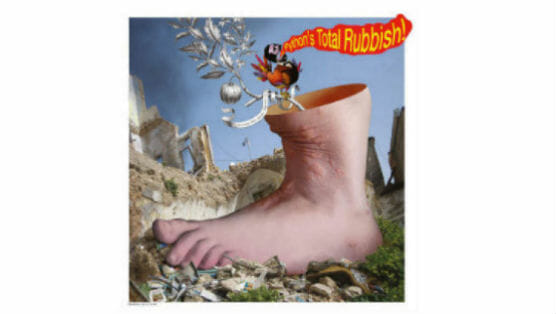Monty Python’s Total Rubbish: The Complete Collection

The only thing missing is “Oliver Cromwell.”
Otherwise, Monty Python’s Total Rubbish: The Complete Collection is complete indeed. Or complete enough, at any rate. It’s a collection of all nine albums the comedy troupe released in the U.K., remastered and split among nine CDs (or 10 vinyl LPs) with a lavish book featuring a foreword from Michael Palin and archival photos.
It’s not the first compilation the Pythons have released: they’ve put out a steady stream of best-of discs over the years, and repackaged eight of their albums into The Instant Monty Python CD Collection, a six-disc box set, in 1994. That would have sufficed, if not for the annoying way the discs were organized: instead of individual tracks for each sketch, each of the eight albums in the collection was split into vinyl sides, meaning there were two tracks per CD, along with a list of what each 20-plus minute track contained.
That was fine for binge-listening on car rides and the like, but made it irritating to find specific sketches without a lot of fast-forwarding. By rectifying that particular oversight, and adding a ninth album, Total Rubbish offers the single best overview of Monty Python’s career, from their 1970 LP debut Monty Python’s Flying Circus through their last original album in 1983, the soundtrack to Monty Python’s The Meaning of Life.
It’s been more than 30 years now since Monty Python released anything new (apart from “Oliver Cromwell,” a song that first came out in 1989 and appeared on the group’s 1991 compilation Monty Python Sings), and yet the troupe’s influence endures—even flourishes, given the massively successful reunion of the surviving Pythons earlier this year in London—in what looks like a golden age for comedy.
-

-

-

-

-

-

-

-

-

-

-

-

-

-

-

-

-

-

-

-

-

-

-

-

-

-

-

-

-

-

-

-

-

-

-

-

-

-

-

-








































